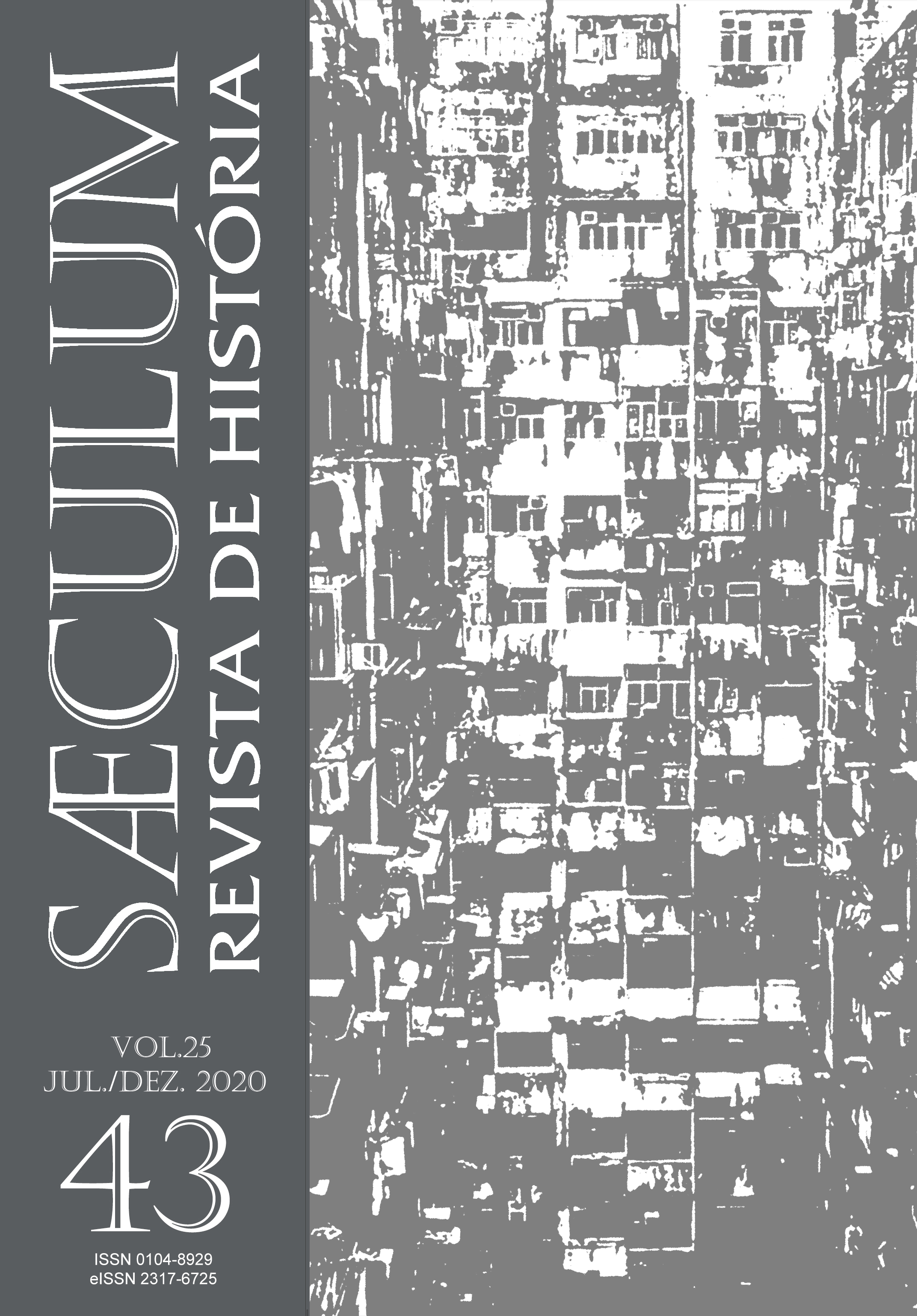Institutions of seclusion and “control” of the insane in Parahyba do Norte between 1889 and 1928
DOI:
https://doi.org/10.22478/ufpb.2317-6725.2020v25n43.54571Keywords:
Madness, Institutionalization, Enclosure, CityAbstract
At the end of the 19th century and the first decades of the 20th century, the city of Parahyba do Norte, influenced by the ideas of modernity and civilization, experienced a series of reforms in the physical space as well as several transformations in the customs, habits and daily lives of its population. These reforms sought to “remove” and “exclude” from the central areas of the city those who were held responsible for promoting “disorder.” It was about destroying buildings outside the so-called alignment and / or excluding and, if possible, silencing historically, the poor, abandoned minors, beggars and madmen who roamed the streets. In this article, we intend to study, specifically, the attempts to exclude individuals considered crazy from the streets of the city of Parahyba do Norte as well as the psychopolitics of exclusion. Sources such as the Reports of the Presidents of State / Province, the Santa Casa de Misericórdia Report, and the newspapers of the time were searched for, trying to historicize the attempts to control the so-called “furious” in the Public Jail, at Santa Casa da Misericórdia, later Sant'Anna asylum and, finally, at the Colônia Juliano Moreira hospital, when psychiatric doctors can exercise knowledge / power in institutions based on scientific discourses. ficos, who cloistered, watched and silenced those labeled with the mark of madness.
Downloads
References
ARAÚJO. Edna Maria Nóbrega. Uma Cidade muitas tramas: a cidade da Parahyba do Norte e seus encontros com a modernidade. Recife, 2001, 167p. Dissertação de Mestrado em História. Universidade Federal de Pernambuco. Recife, 2001
BRITO, Fátima Saionara Leandro. Andanças que cortam os caminhos da razão: as vivências insanas e a atuação da reforma psiquiátrica em Campina Grande PB. 2011. Dissertação (Mestrado). Programa de Pós-Graduação em História, Universidade Federal de Pernambuco, Recife, 2011.
CASTRO, Oscar Oliveira. Medicina na Paraíba: flagrantes da sua evolução. João Pessoa-PB: A União, 1945.
CUNHA, Maria Clementina Pereira da. Cidadelas da Ordem: A doença mental na república. Coleção tudo é História. São Paulo: Brasiliense, 1989.
FOUCAULT, Michel. Microfísica do Poder. 8. ed. Rio de Janeiro: Graal, 1989.
FOUCAULT, Michel. História da Loucura na Idade Clássica. 8. ed. São Paulo: Perspectiva, 2005.
GOFFMAN, Erving. Manicômios, prisões e conventos. São Paulo: Perspectiva, 2005.
JUNQUEIRA, Helmara Giccelli Formiga Wanderley. Doidos[as] e Doutores: A medicalização da loucura na Província/Estado da Parahyba do Norte 1830-1930. Recife, 2016, 465p. Doutorado em História Universidade Federal de Pernambuco, 2016.
OLIVEIRA, Iranilson Buriti. “Fora da Higiene não há salvação”: a disciplinarização do corpo pelo discurso médico no Brasil Republicano. Mneme – Revista de Humanidades v. 4, n. 7, p. 14-29, fev./mar. 2003. Disponível em: https://www.periodicos.ufrn.br/mneme/article/view/161. Acesso em: 19 nov. 2020.
OLIVEIRA, José Rogério de. Políticas Públicas de saúde mental e reforma psiquiátrica em Pernambuco (1991 – 2001). Recife, 2008. 146p. Mestrado em História, Universidade Federal de Pernambuco. Recife, 2008.
PELBART, Peter, Da clausura do fora ao fora da clausura: Loucura e desrazão. São Paulo: 1994.
SANTOS. Leonardo Querino Barboza Freire dos. Entre a Ciência e a Saúde Pública: A Construção do Médico Paraibano como Reformador Social (1911 – 1929). Campina Grande, 2015, 254p, Mestrado em História, Universidade Federal de Campina Grande, 2015.
SEVCENKO, Nicolau. Literatura Como Missão: tensões sociais e criação cultural na primeira república. 4 ed. São Paulo: Brasiliense, 1995.
SILVA FILHO, Edivaldo Brilhante. História da Psiquiatria na Paraíba. João Pessoa: Santa Clara, 1998.












